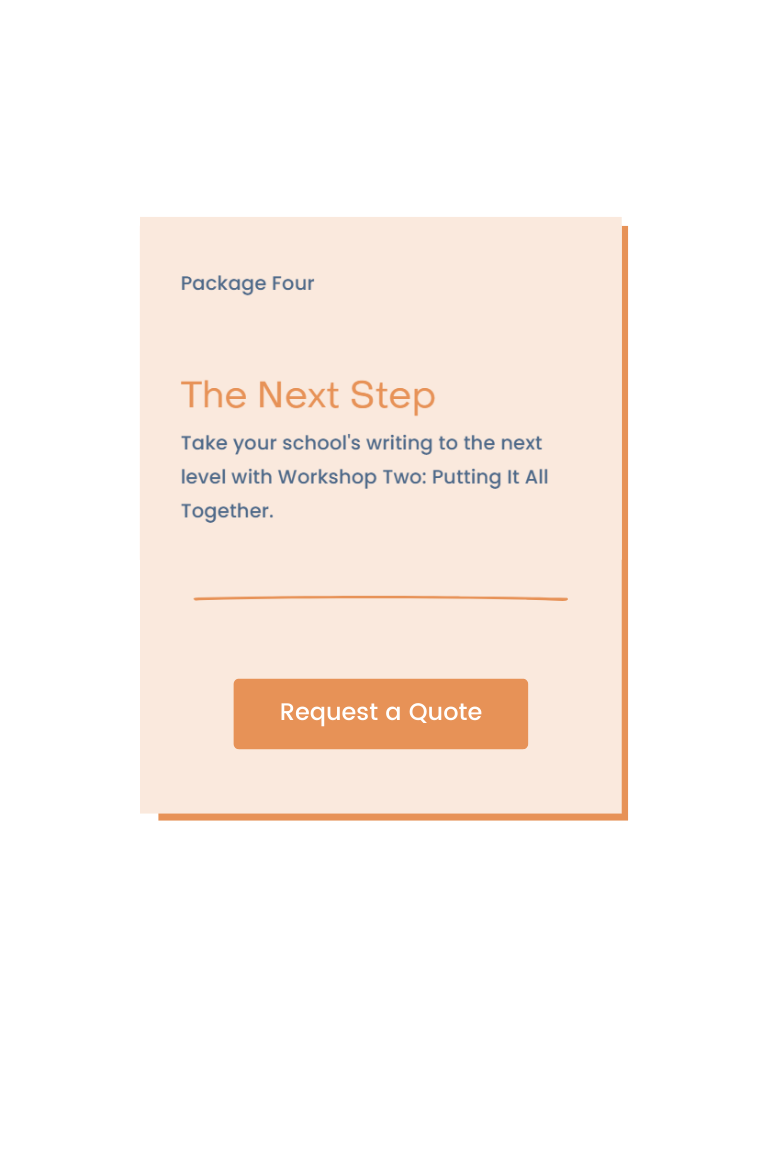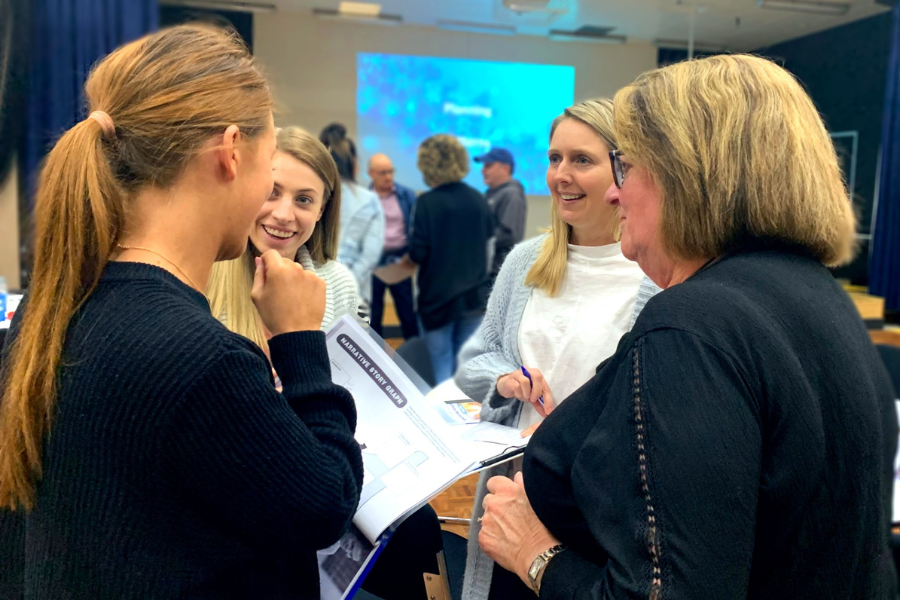No products in the cart.

10 min

Product Insight

Saangpi Suan
The ability to write an effective informative text is an important skill for students to learn. In fact, it’s an essential life skill.
As students progress through their school years and beyond, they will use and interact with informative texts on a daily basis. They need to become confident communicators who can understand and create different types of texts to engage and inform an audience.
In this blog, we showcase how Workshop Two: Putting It All Together will empower you to:
- ignite your students’ creativity in their informative writing
- develop and hone your students’ inquiry learning skills
- harness the power of collaboration in your students’ planning and writing.
Come and find out how to transform your students into inquiry experts and have fun with facts!

Ignite your students’ creativity in their informative writing
Reports and recounts don’t have to be boring. Creativity and narrative techniques can be used to great effect in factual texts. That means that you are not starting from scratch when you tackle a new text type.
Workshop Two demonstrates how all the Seven Steps skills and techniques (from Workshop One) can be used in an informative text to really engage, entertain and inform readers.
Watch Seven Steps presenter and classroom teacher Deb Larmer talk about the role of creativity in informative texts.
Encourage students to level up their writing by using elements of a narrative in their informative texts to create hybrid texts – these are single texts with a dual purpose, such as informative picture books.
Some examples of hybrid texts that you could share with your class include:
- Simpson and His Donkey by Mark Greenwood
- Searching for Cicadas by Lesley Gibbes
- Beth: The Story of a Child Convict by Mark Wilson.
Students often have a wonderful aha moment when they realise that there’s room for creativity in informative writing. As a teacher, it’s a powerful and rewarding experience to see this moment reflected on students’ faces and in their writing.
Discover how to help your students dive deep into an informative topic and combine elements of narrative, persuasive and informative texts for maximum effect.
Develop and hone your students’ inquiry learning skills
Workshop Two is invaluable when it comes to inquiry learning because it demonstrates how to help students engage with the topics they are studying in class, deepen their understanding and take more ownership over their learning.
Watch Seven Steps presenter and classroom teacher Deb Larmer discuss how Workshop Two can help enhance students’ inquiry learning skills.
We can see this in action when Deb describes how her Year 5 students’ writing ‘took you on a journey with them. They were amazing. In fact, the teachers at the Sovereign Hill School said these students’ historical letters were the most creative and thought-provoking that they had ever received, and they read thousands every year!’
Creative and thought-provoking – now that’s a winning combination!
Students can often find informative writing topics overwhelming – think climate change or the Australian Gold Rush. So, it’s important to narrow the focus. Rather than trying to write about the entire topic, encourage students to hone in on one area of interest.
For example, for the Australian Gold Rush, a student might focus on school life on the Victorian goldfields; for climate change, a student might focus on the Australian wildlife most threatened by our rapidly changing climate.
After Workshop Two, you’ll have the know-how to turn your students into inquiry learning experts who can:
- develop great research questions
- select a focus and research effectively
- write in a highly engaging way, not just regurgitate a list of facts.
These are the skills that will take student writing from competent to compelling!

Harness the power of collaboration in your students’ planning and writing
The ability to collaborate with others is an important life skill. Some students can problem solve and work well together, but it doesn’t come naturally to all.
Collaboration is vital for students to learn how to:
- clarify their thinking
- generate ideas
- hear different opinions and perspectives
- revise and rethink their own ideas.
Watch Seven Steps presenter and classroom teacher Deb Larmer discuss the benefits of collaboration when planning and writing whole texts.
Planning collaboratively is far less overwhelming for students and teachers, which is why we plan together in teams. Plus, it’s a lot more fun!
You can see the power of collaboration in action during a Workshop Two held at Mount View Primary School (starting at 1:31 in the video above). In groups, teachers used all the Seven Steps to plan and create an informative text for the topic ‘The conditions on the First Fleet’.
One group of teachers wrote from the perspective of a journalist who had snuck onto one of the ships to report back to the British public about the conditions on board.
Thanks to the creative input of the whole group in the planning and writing, their text was highly engaging and entertaining, and it flowed incredibly well. And the teachers loved the process!
This collaborative approach also works well for persuasive and some narrative texts. It is a wonderful way to support students when they first tackle the complex task of writing a complete text, and it can produce amazing results.
Ready to take the next Step? Join us for a day of collaborative brainstorming, planning and writing that will revolutionise the way you teach informative and persuasive writing.
School Workshop Two
Take persuasive and informative writing to the next level









